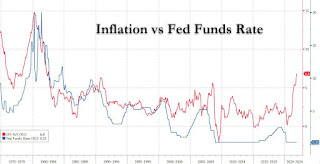--Member of Joint Chiefs of Staff (The Hunt for Red October)
The North Atlantic Treaty Organization is a military alliance formed after WWII. It currently holds 30 member countries--28 of them from Europe in addition to Canada and the US. The agreement is based on a system of shared security where members pledge to protect each other in the event of attack from external members.
Each member also pledges to spend at least 2% of GDP on military resources. In actuality, some countries fall far short of the mark while others (read: the US) spends significantly more.
The high European country membership coupled with the provincial headquarters (Brussels) suggests dominant Euro influence. However, because it brings more resources to the NATO battle ground than any other member (by far), the United States exerts considerable leverage in the pact.
What enemy could be so great that it necessitates such a collective protection system? NATO's founding period provides the obvious answer: Russia. When the NATO treaty was signed in 1949, the Soviet Union loomed just east of the Berlin Wall. NATO's military resources were clearly configured and positioned to guard against Russian incursion.
When the Wall crumbled in the late 1980s, however, NATO didn't. Instead, it kept expanding. Membership gradually increased from the 12 founding countries to today's 30. In addition, partnerships with countries add more than a dozen 'shadow' members.
A quick glance at a world map reveals that NATO sustaining and shadow members virtually surround Russia with little or no land buffer at the border.
Now, let's suppose that a China-led interstate military alliance was formed. Membership grows to include Canada, Mexico, islands in the Caribbean, etc such that the United States was surrounded by a collective highly influenced by the CCP.
Would the US stand idly by? (hint: see Cuban missile crisis)
Neither has Russia. Rightly or wrongly, it perceives NATO expansion as a threat to their sovereign 'sphere of influence.' If countries such as Ukraine were to join NATO, then an important chunk of remaining buffer between Russia and this external threat disappears.
Experts have been warning about the consequences of NATO expansion for years--as have Putin and other Russian authorities. Moreover, Putin explicitly cited NATO expansion as a driving force behind his military actions last week.
To those claiming that NATO expansion has little to do with Russia's actions in the last few days, they either haven't been paying attention or are purposely looking away. Why the latter may be true is an interesting question to ponder.
Here's another question, one for the NATO expansion deniers: Why not offer guarantees of no further expansion as a quick way to end the conflict? Here's your chance to prove experts wrong and Putin a liar.
Why not, indeed.
































